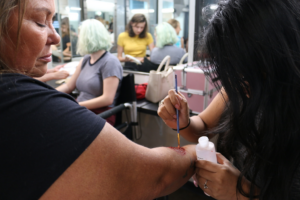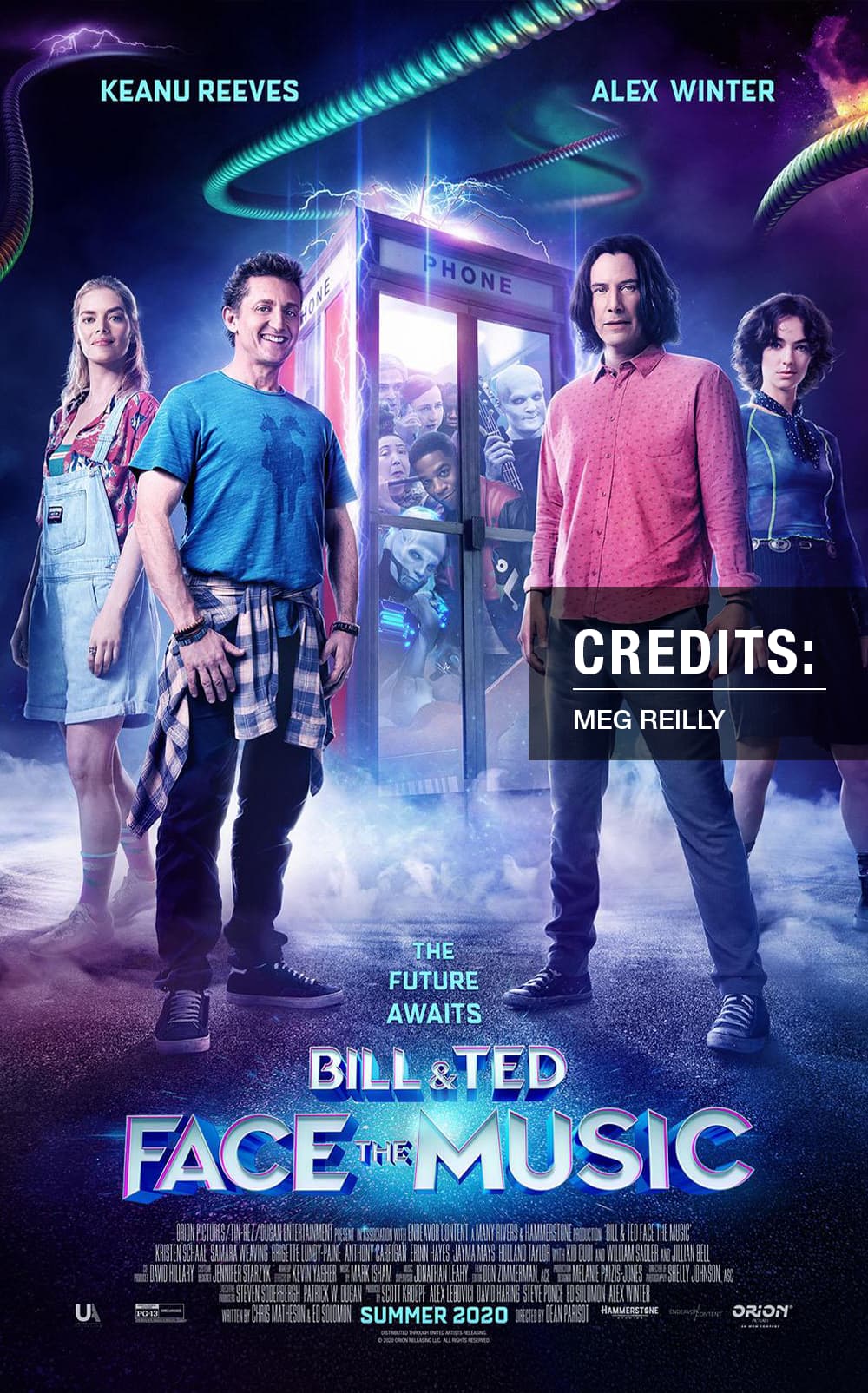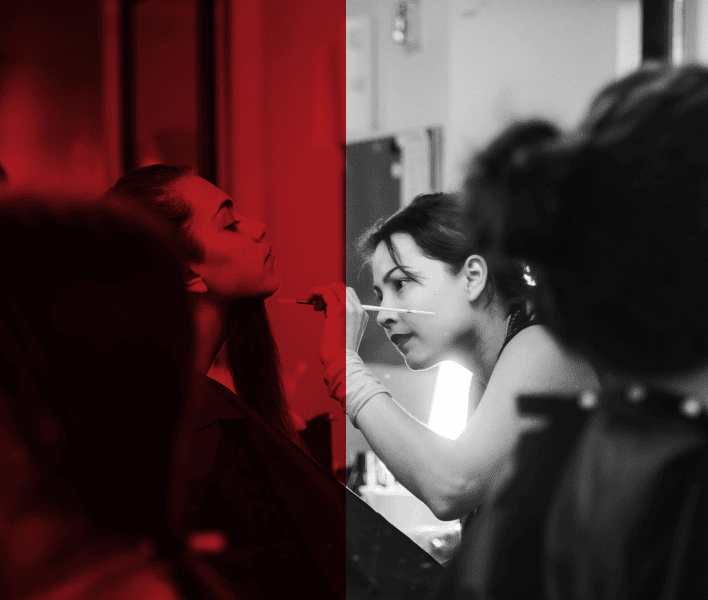When you’re passionate about makeup, choosing the right educational path can be both exciting and overwhelming. Should you enroll in a cosmetology school and learn the art of beauty transformations, or dive into creating monsters, gore and fantasy characters at an SFX makeup school?
Both paths offer rewarding careers, but the skills, industries and opportunities they lead to are very different.
In this guide, we’ll break down everything you need to know about cosmetology makeup and special effects makeup so you can make the best choice for your goals.
What Kind of School is a Cosmetology School?
A cosmetology school is an educational institution that trains students in the professional application of beauty services. This includes makeup artistry, hair styling, skincare, manicures and more. Some programs may offer advanced courses in salon management or spa services.
Most cosmetology schools require a certain number of training hours to be eligible for state licensing exams, meaning your career often starts in regulated industries like salons, spas, or beauty counters.
Common Areas to Work as a Cosmetology Makeup Artist:
- Day & evening beauty makeup
- Hair cutting and coloring
- Skincare (facials, acne treatment, etc.)
- Nail technology
- Sanitation & safety practices
- State board preparation
What Is an SFX Makeup School?
A special effects makeup school specializes in teaching the art of makeup transformations for film, television, theater, theme parks and more. This is where students learn how to build monsters, creatures, zombies, prosthetics, wounds, fantasy characters and even animatronic effects.
SFX makeup training dives deep into sculpting, mold-making, prosthetic application, lifecasting and airbrush techniques. The focus is on storytelling through makeup, often using materials like latex, silicone, gelatin and foam.

Helpful insights on: How to Create Creature Design Using Latex, Silicone & Prosthetics?
Core Subjects in SFX Makeup School:
- Character and creature design
- Prosthetic sculpting & application
- Gore effects: wounds, burns, bruises
- Face casting and mold-making
- Hair punching & wig laying
- Airbrushing & painting techniques
- On-set and camera-ready practices
Differences Between Cosmetology and SFX Makeup Training
Let’s break down the most important differences so you can better understand which path suits your ambitions.
| Feature | Cosmetology School | SFX Makeup School |
|---|---|---|
| Main Focus | Beauty & personal grooming | Film, TV, theatrical & character makeup |
| Subjects | Hair, skin, nails, basic makeup | Prosthetics, FX wounds, fantasy design |
| Career Outcomes | Salon stylist, bridal MUA, skincare expert | SFX makeup artist, creature designer, film MUA |
| Tools Used | Brushes, foundations, skincare products | Latex, silicone, airbrushes, molds |
| Client Type | General public, brides, beauty clients | Production companies, filmmakers, haunted attractions |
Check Out: How Cinema Makeup School’s Bootcamps and Workshops Empower You to Master SFX Makeup?
How to Choose the Right School Based on Your Career Goals?
Before you commit to either a cosmetology school or an SFX makeup school, take a moment to map out your long-term vision. Where do you see yourself working in the next few years and what kind of artistry excites you most?
If your goal is to work directly with clients, helping them feel confident and beautiful through hair styling, skincare, or natural makeup, cosmetology school may be the right fit. It offers client interaction and practical techniques you’ll need to thrive in salons, spas, or bridal studios.
On the other hand, if you dream of working behind the scenes in film, television, or live entertainment – crafting blood effects, prosthetics, or fantasy characters, then SFX makeup school is the creative path that aligns with your ambitions. You’ll build a portfolio and focus on techniques like lifecasting, airbrushing and creature design.

Get to Know: What Do SFX Makeup Artists Use for Fake Blood?
Choosing the Right Path Based On:
Creative goals: Are you fulfilled by enhancing natural beauty, or do you want to create advanced looks required in film, TV and stage productions?
Income style: Do you prefer building a steady income as a licensed cosmetologist, or are you excited by project-based income as an SFX makeup artist?
Work environment: Would you enjoy forming long-term client relationships, or does collaborating with behind-the-scenes artists and production teams excite you more?
Interest in storytelling: Do you want to help someone look their best for real-life moments, or transform actors into otherworldly characters that drive a narrative?
Bonus Tip: Want to Truly Excel in SFX Makeup?
Cinema Makeup School, part of the Cinema Art College Corporation, is where serious artists come to push boundaries. In our special effects makeup course, students don’t just learn from books – they train with the best working MUAs in the industry. You’ll have the chance to showcase your work publicly, collaborate with artists from around the world and build a standout portfolio.
And if finances are holding you back? Don’t stress. We offer flexible financing options so money doesn’t stand in the way of your makeup dreams.
Enroll now and turn your dream of becoming an SFX makeup artist into reality!
Can You Learn Both?
Yes! Some artists choose to start with cosmetology makeup for a stable income base and later enroll in an SFX makeup school to expand their creative skills.
This combo opens doors to a wide range of freelance work – from bridal makeup on weekends to movie shoots during festival seasons.
Want a behind-the-scenes look at what you could be learning? Watch our student projects on YouTube!
Frequently Asked Questions:
Q 1. Which career path has better income potential: cosmetology or SFX makeup?
Both paths can be lucrative, but the income style is different. Cosmetologists often earn steady, client-based income through regular appointments, tips and retail commissions. SFX makeup artists usually work project-by-project, with the potential for higher pay per job, especially on film or commercial sets.
Q 2. Can I join a special effects makeup course without giving up my beauty clients?
Definitely. Many working beauty artists expand into SFX makeup to diversify their services. You can continue your bridal or salon work while learning SFX part-time or through:
Q 3. Do I need a portfolio for cosmetology or SFX makeup jobs?
A portfolio is valuable in both fields, but it’s primarily essential in special effects makeup. In cosmetology, employers often prioritize your license and client-handling skills. But in SFX makeup, your portfolio speaks for your talent, showcasing your ability to create prosthetics, wounds, creatures and transformations.


























































